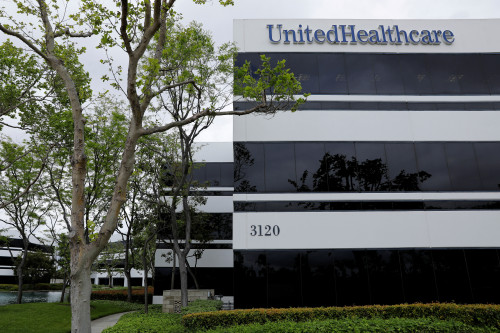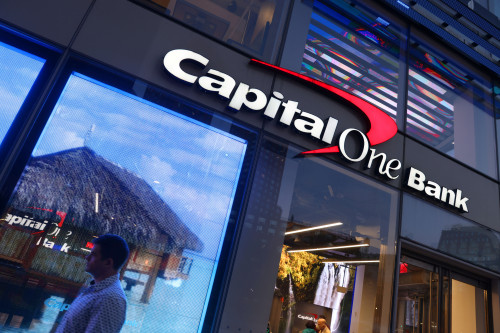By Sriparna Roy
(Reuters) -UnitedHealth has traditionally been a company investors saw as reliable, having not missed earnings estimates since the 2008 global financial crisis.
Until Thursday. The country’s largest insurer by market value fell far short of expectations with its quarterly earnings, leading to its worst one-day selloff in more than a quarter-century.
Its subsequent conference call still left analysts puzzled over the shortfall, even though some praised it for walking analysts through the circumstances that caused the earnings miss.
UnitedHealth pulled in revenue of $109.6 billion for the first quarter, about $2 billion shy of expectations, and it also fell short of earnings estimates. The industry bellwether pointed to rising medical costs in its plans for older adults – and what it termed as “unanticipated changes” in its Optum health services subsidiary that was viewed as the growth engine of the conglomerate’s business.
Several analysts said they were left with a lot of burning questions as the insurer is typically known to be conservative in its forecast and often raises it as the year progresses.
“We do not believe the earnings call answered all investors’ questions which could indicate a lack of clarity on UNH’s part given it is still early in the year,” said Mizuho analyst Ann Hynes.
At first, investors interpreted the earnings miss as an industry-wide problem, aggressively dumping both UnitedHealth shares and those of its rivals. That approach changed by mid-morning, however, when rival Elevance Health said it still expected quarterly profits to come in as forecast.
Investors kept up the selling pressure on UnitedHealth, but the other shares recovered a good chunk of their losses; Elevance, which at one point had been down 5.8%, ended off by just 2.3%.
UnitedHealth lost more than 22%, shaving nearly $120 billion off its market value, its biggest one-day selloff since 1998.
The company has faced stark challenges over the past year – a cyberattack at its tech unit that affected 200 million Americans and the murder of its insurance unit head, Brian Thompson. His killing outside the company’s investor meeting in New York rattled the industry as it triggered an outpouring of anger from Americans frustrated over their dealings with health insurers.
In February, the Wall Street Journal reported that the Justice Department was investigating its Medicare billing practices for using unneeded medical codes to increase payments. The health insurer has said it is unaware of a probe.
Investors also expressed surprise at the performance of its Optum unit, which includes its pharmacy benefits management division and the prescription drug plans it runs for Medicare. Those plans were affected by changes in 2025 reimbursements.
“Optum was kind of always the saving grace, being able to grow through (the challenges),” said Kevin Gade, chief operating officer of investment firm Bahl & Gaynor.
“Last year, Optum was always the silver lining that UnitedHealth had versus its peers,” he said.
Wall Street will be keenly watching details from rivals, especially Humana, another top provider of Medicare Advantage plans whose shares fell 7% on Thursday.
“It’s the shock of how quickly we saw negative trends develop and then probably added complexity from just the challenging backdrop that the industry has seen for the last year or two,” said Leerink Partners analyst Whit Mayo.
(Reporting by Sriparna Roy and Bhanvi Satija in Bengaluru; editing by Caroline Humer and David Gaffen)




